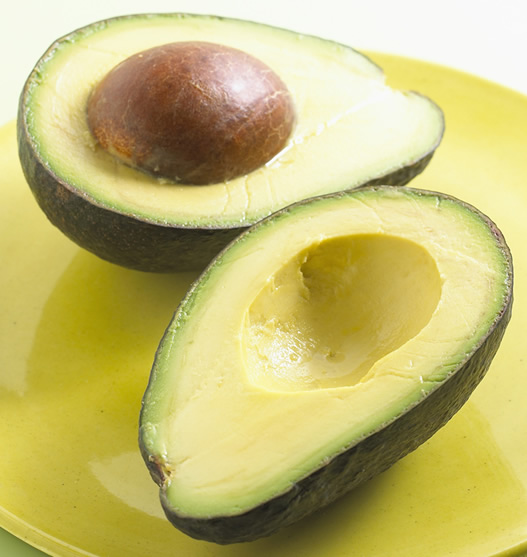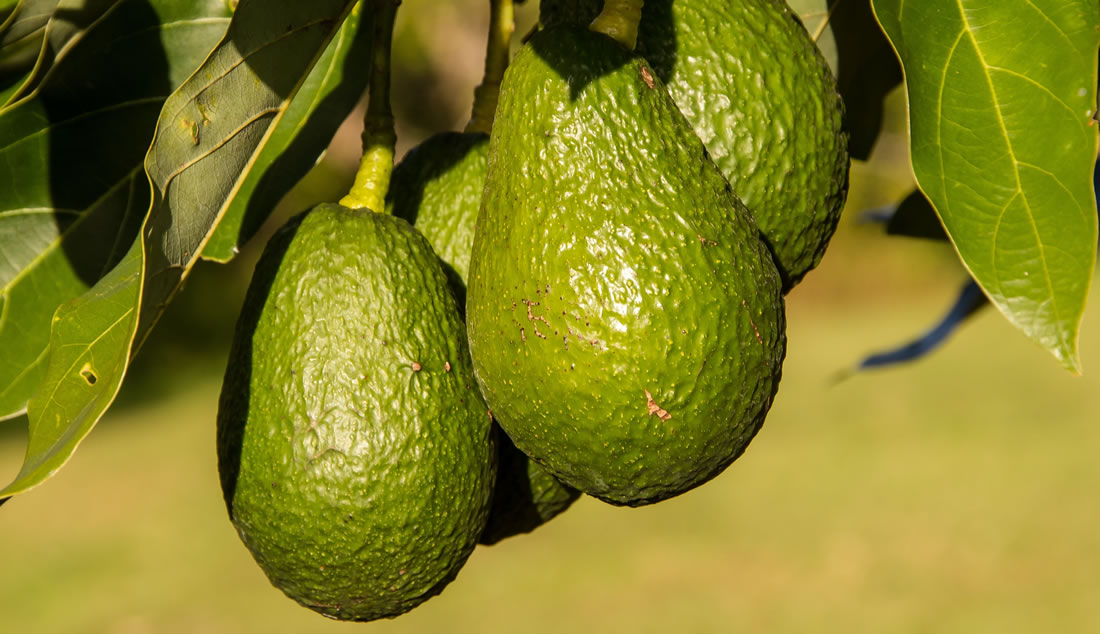Avocados
75% of the calories in an avocado come from fats: 16% is SFAs, 71% is MUFAs, and only 13% is PUFAs. Avocados are also loaded with fat soluble vitamins, many of which are crucially important for healthy hormone production in men and women. The high levels of monounsaturated fat in avocado, especially oleic acid, have heart-related benefits. This high level of mono-unsaturates puts avocado in a similar category with olives.
Avocados are likely to provide you with health benefits in the areas of blood sugar control, insulin regulation, satiety and weight management and decreased inflammation.

One avocado contains:-
- vitamins C (20mg - 33% RDA)
- vitamin E (4mg - 20% RDA)
- vitamin K as K1 (21mg - 15% of RDA)
- vitamin B-6 (0.5mg - 305 RDA)
- Fibre (13g - 40% RDA)
- Copper (0.35mg - 53% RDA)
- Riboflavin
- Vitamin B3 - Niacin
- Folate (150mg - 40% RDA)
- Pantothenic acid, vitamin B-5 (2.8mg - 28% RDA)
- Magnesium (55mg - 20% RDA)
- Potassium (970mg)
- Lutein. Avocados are the highest fruit source of lutein at 0.5mg - 10% RDA
- Beta-carotene for the eyes. Avocados improve carotenoid absorption, but also improve conversion of beta-carotene into active vitamin A.
- Omega-3 fatty acids, although there is way more omega-6.
Always peel an avocado
The areas of the pulp that are closest to the peel are higher in certain phytonutrients. So you don't want to slice into that outermost, dark green portion of the pulp. Always carefully peel the avocado.
When to eat an avocado
A firm avocado will ripen in a paper bag or in a fruit basket at room temperature within a few days. As the fruit ripens, the skin will turn darker. Hold the avocado very gently in your palm and begin to press very gently against its surface. Avocados should not be refrigerated until they are ripe. Once ripe, they can be kept refrigerated for up to a week. Always store as a whole fruit (not sliced).

If an avocado went to school with the rest of the fruits, they would definitely be the "fat kid".
Sources: whfoods, draxe.com
